
Find Help
More Items From Ergsy search
-
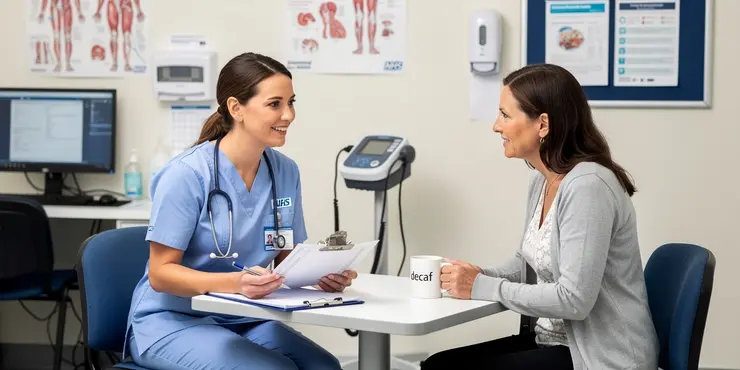
Can decaffeinated coffee affect blood pressure?
Relevance: 100%
-
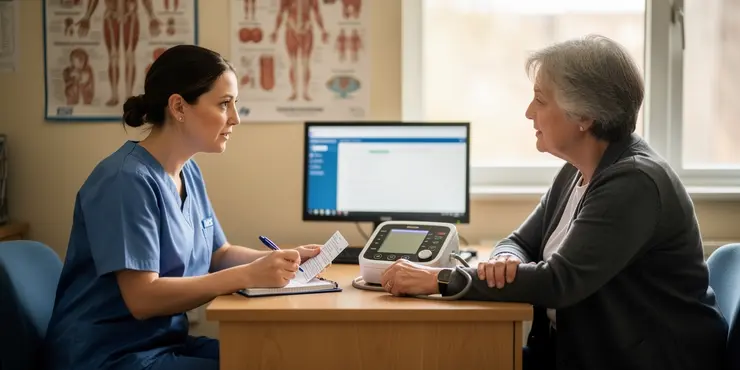
Is it safe to take blood pressure medication with coffee?
Relevance: 100%
-
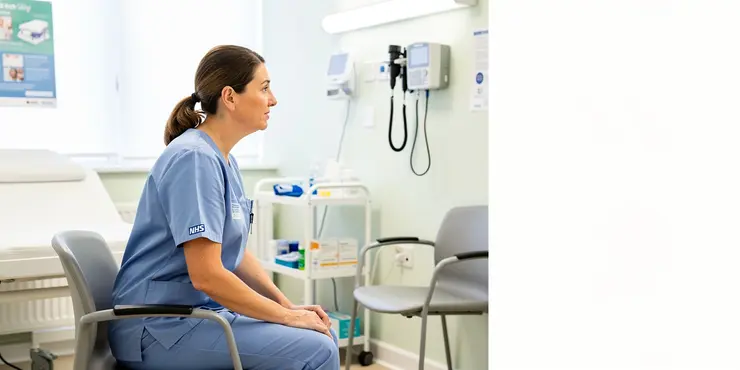
Are there any other factors in coffee that may affect blood pressure?
Relevance: 95%
-

Should people with high blood pressure avoid coffee entirely?
Relevance: 94%
-
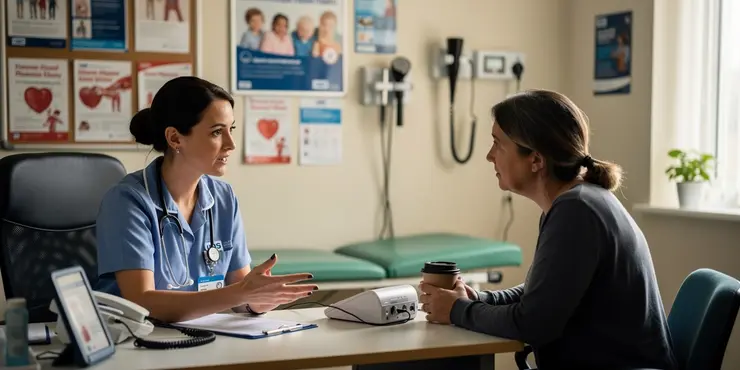
How can one minimize the impact of coffee on blood pressure?
Relevance: 94%
-
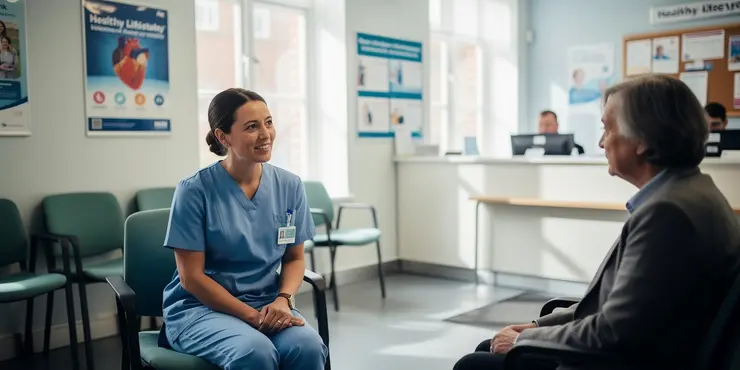
Is Your Morning Coffee a Risk Factor for High Blood Pressure?
Relevance: 93%
-
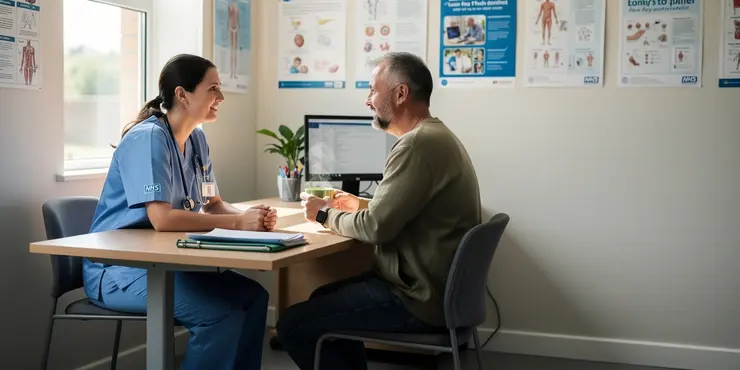
Is green tea a better alternative to coffee for blood pressure management?
Relevance: 92%
-
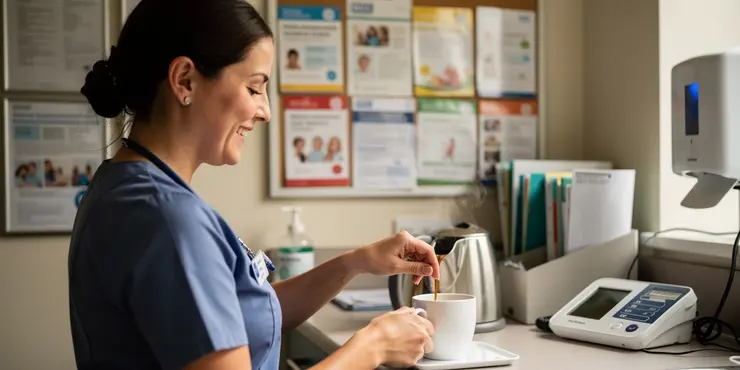
How soon after drinking coffee can blood pressure be affected?
Relevance: 91%
-
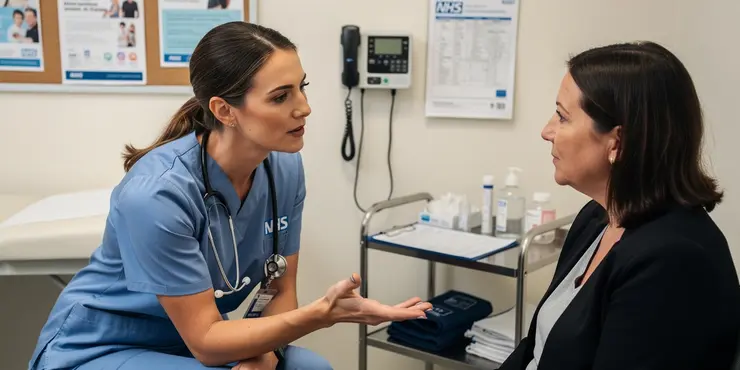
Does genetic makeup affect how coffee impacts blood pressure?
Relevance: 90%
-
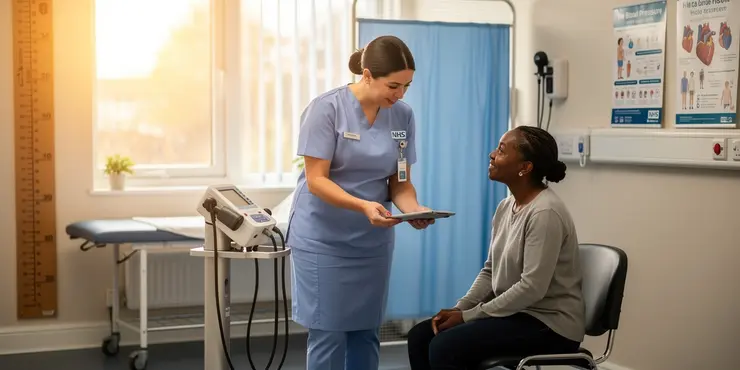
Is there a specific time of day when coffee has the most impact on blood pressure?
Relevance: 89%
-
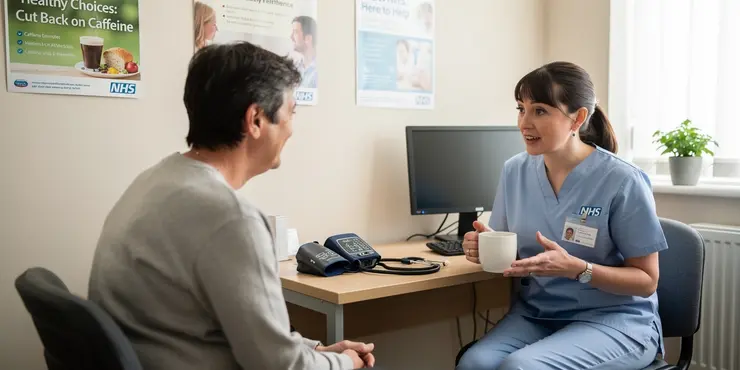
Does drinking coffee every morning increase the risk of developing high blood pressure?
Relevance: 87%
-
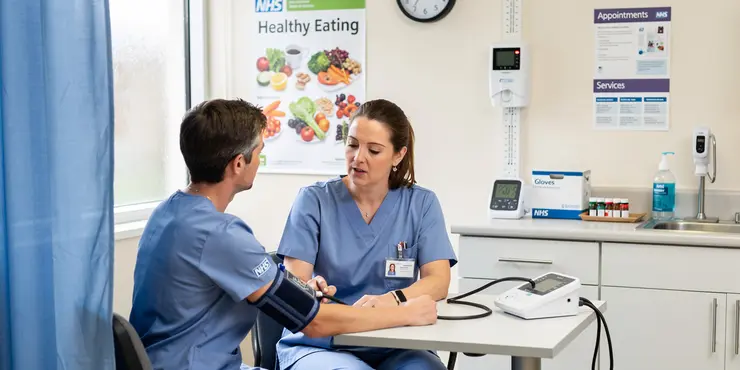
Does caffeine affect blood pressure?
Relevance: 76%
-
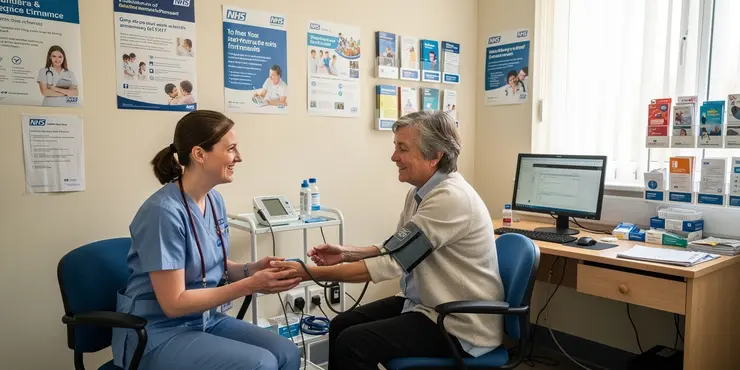
How does caffeine affect blood pressure?
Relevance: 70%
-
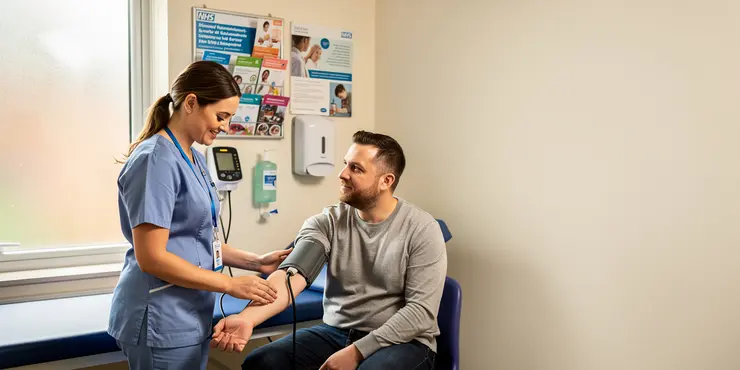
What is the link between coffee consumption and high blood pressure?
Relevance: 68%
-
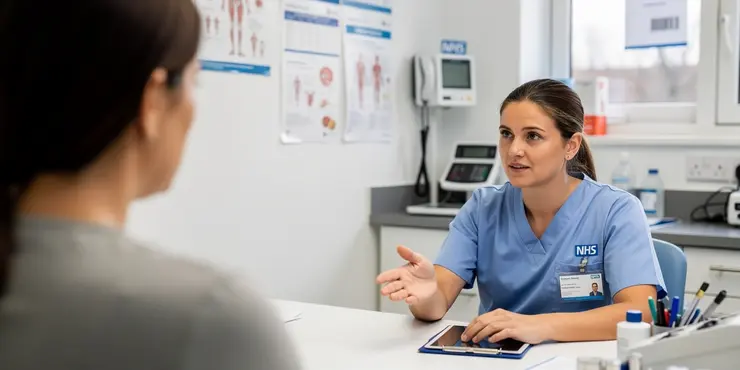
How much caffeine is generally considered safe for people with high blood pressure?
Relevance: 65%
-
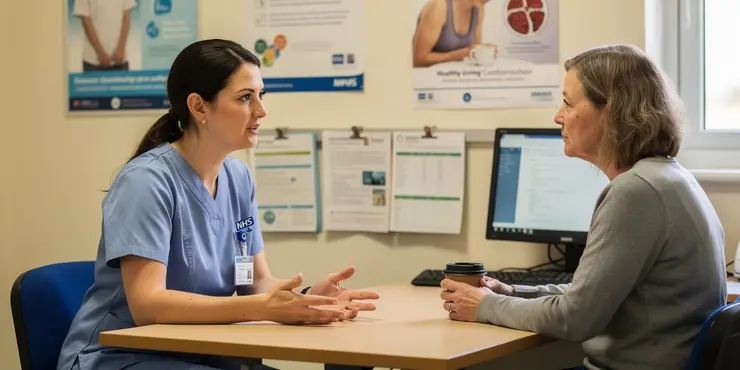
What is the recommended number of coffee cups per day for hypertensive individuals?
Relevance: 65%
-
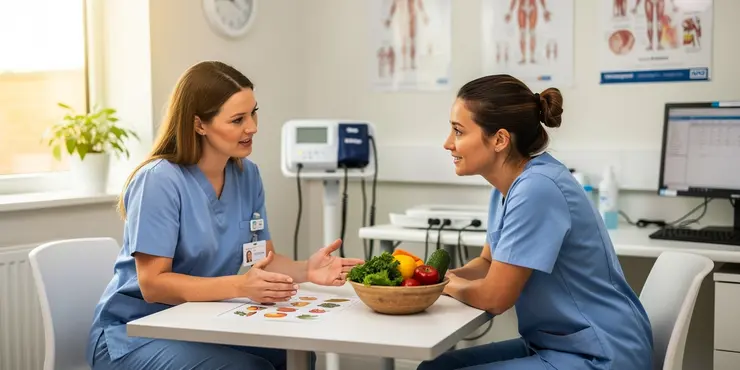
How does diet affect blood pressure?
Relevance: 61%
-
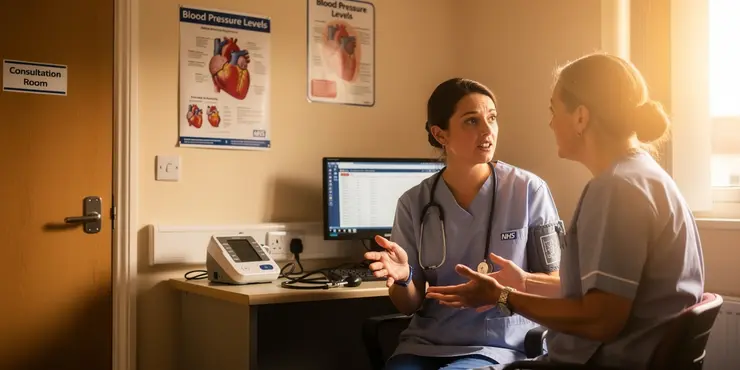
What is high blood pressure?
Relevance: 60%
-

How does regular caffeine consumption impact tolerance and blood pressure?
Relevance: 59%
-
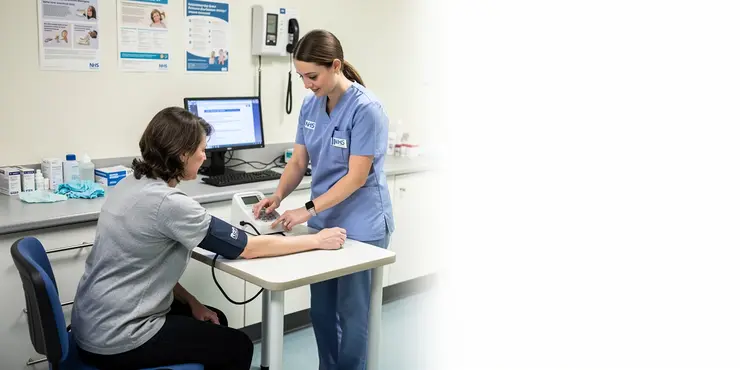
Seven Reaasons For Measuring blood pressure
Relevance: 57%
-
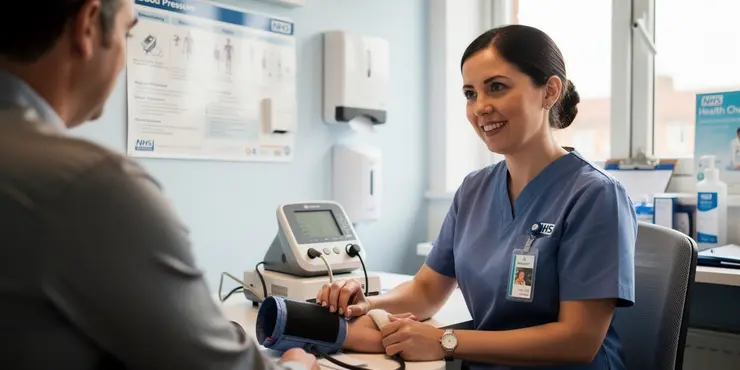
How is high blood pressure diagnosed?
Relevance: 57%
-
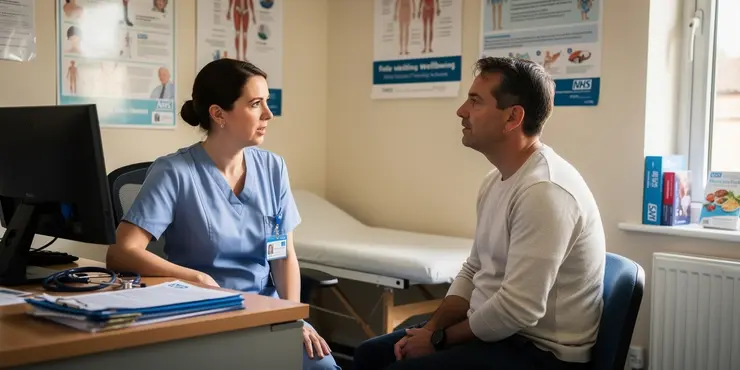
What causes high blood pressure?
Relevance: 57%
-
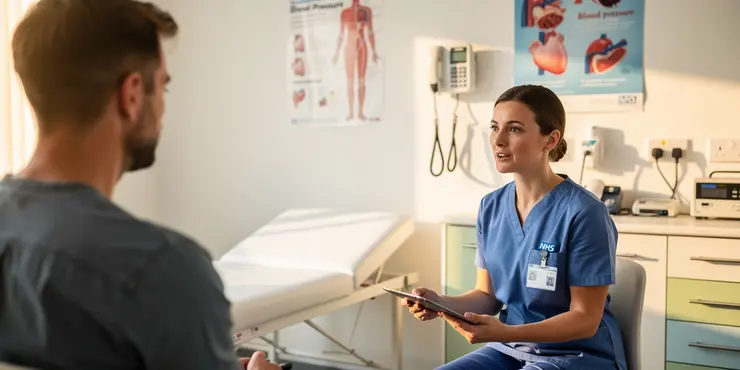
Can high blood pressure be prevented?
Relevance: 57%
-

Does coffee consumption have any long-term heart health effects?
Relevance: 56%
-
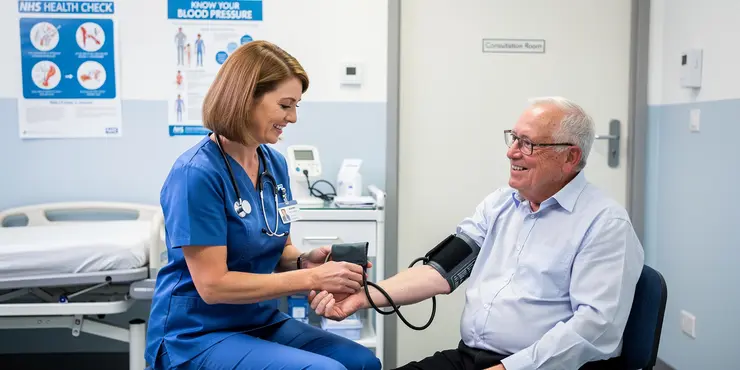
How to take someone's blood pressure
Relevance: 56%
-
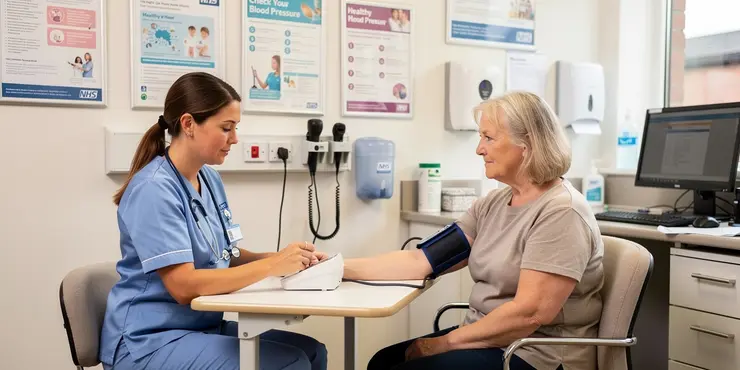
What are the risks of having high blood pressure?
Relevance: 55%
-
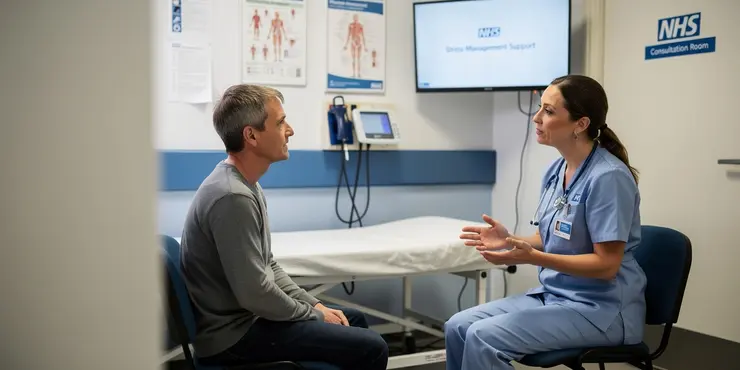
Can stress cause high blood pressure?
Relevance: 55%
-
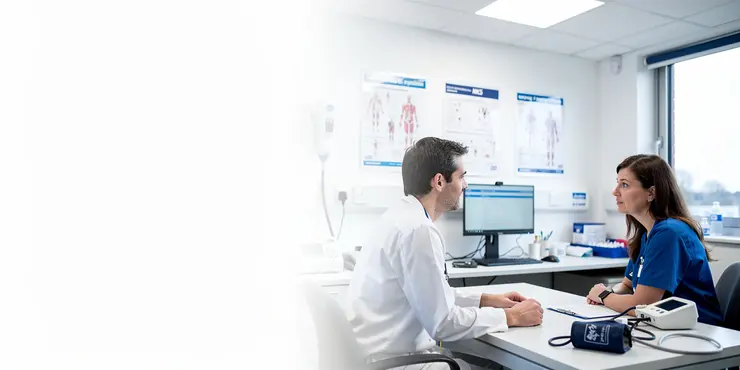
How can high blood pressure be treated?
Relevance: 55%
-
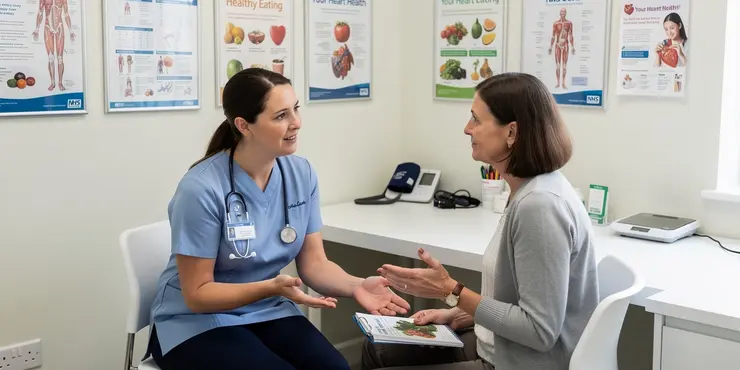
What is the role of potassium in managing blood pressure?
Relevance: 55%
-
How does salt impact blood pressure?
Relevance: 54%
-
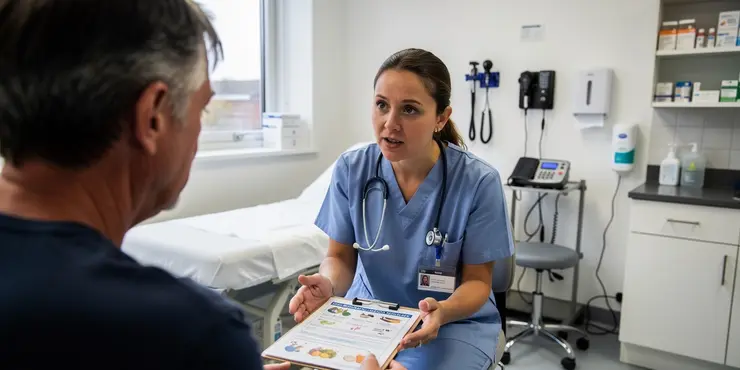
What lifestyle changes can lower blood pressure?
Relevance: 53%
-
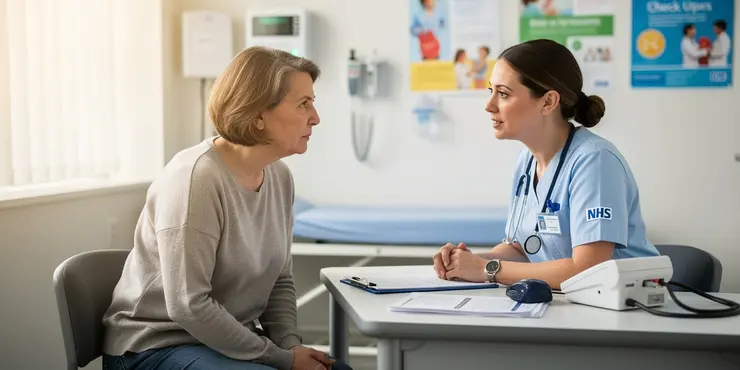
Why is high blood pressure called a 'silent killer'?
Relevance: 53%
-
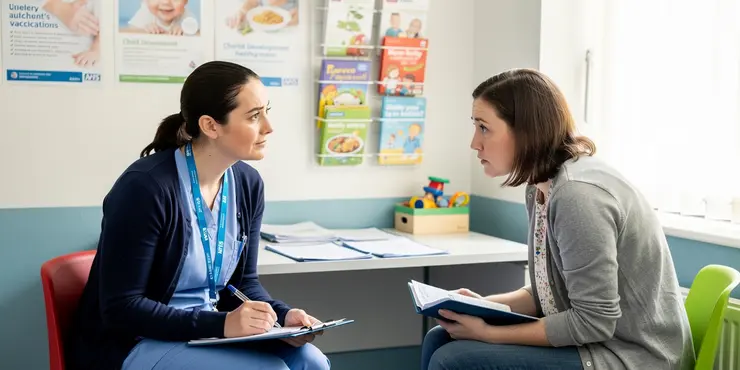
Should I test my child for high blood pressure?
Relevance: 53%
-
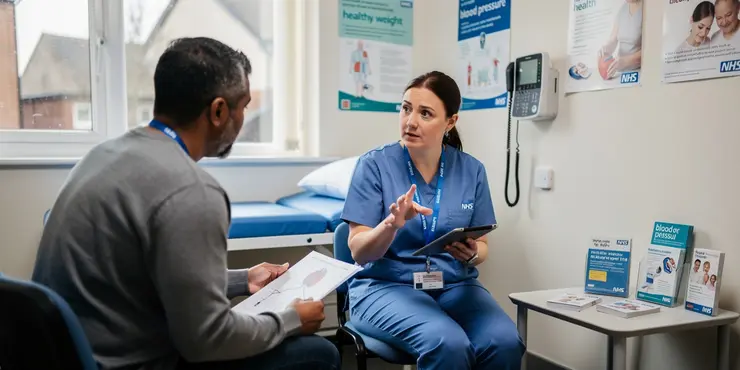
Can weight loss drugs affect blood pressure?
Relevance: 52%
-
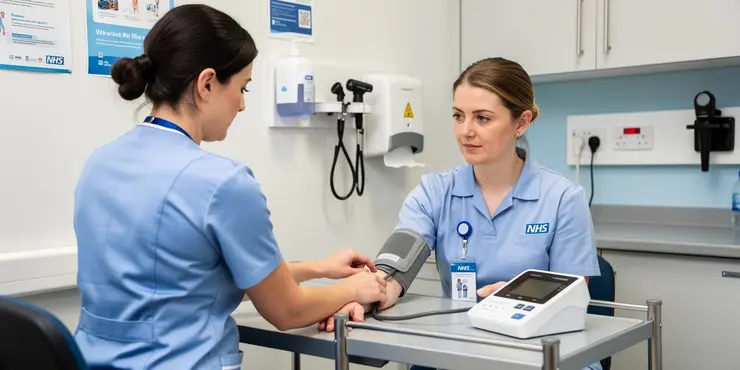
How often should I check my blood pressure?
Relevance: 52%
-
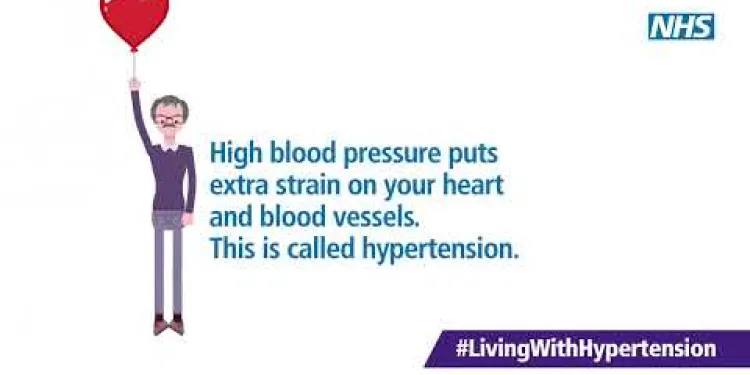
Blood pressure too high? Living with hypertension animation
Relevance: 51%
-
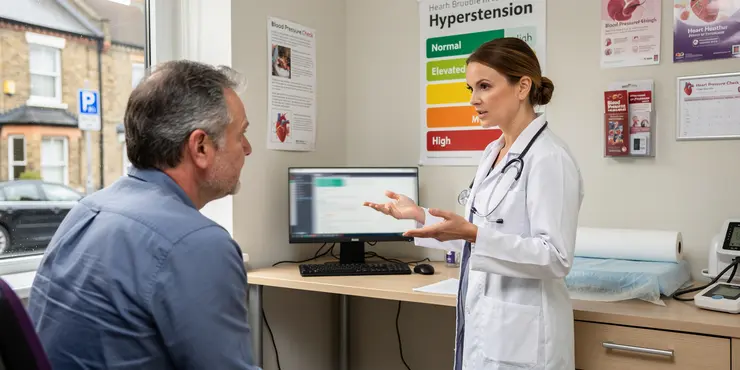
Can high blood pressure lead to other health problems?
Relevance: 51%
-
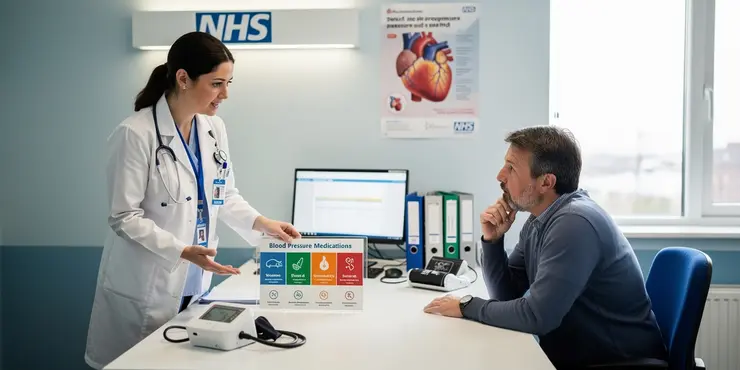
How do medications help control high blood pressure?
Relevance: 51%
-
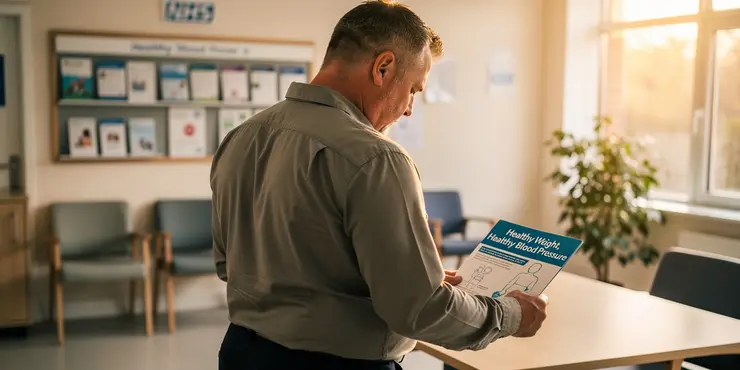
Can weight loss help reduce high blood pressure?
Relevance: 51%
-
What is the ideal salt intake for someone with high blood pressure?
Relevance: 49%
The Effects of Coffee on Blood Pressure
Coffee is a beloved beverage for many, known for its ability to boost energy and enhance alertness. However, it's also noteworthy for its effects on blood pressure. Caffeine, the primary active ingredient in coffee, has been shown to cause a temporary increase in blood pressure. For individuals keeping a close eye on their blood pressure levels, it's essential to understand how quickly caffeine can influence these numbers.
How Quickly Does Coffee Affect Blood Pressure?
Upon consumption, caffeine is rapidly absorbed into the bloodstream. Research indicates that blood pressure can start to rise as soon as 30 minutes after drinking coffee. This spike can reach its peak approximately 1 to 2 hours post-consumption. The increase, usually resulting in a 5 to 10 mmHg rise, is often temporary and tends to subside within 3 to 4 hours as caffeine’s effects wear off.
Factors Influencing the Impact of Coffee on Blood Pressure
Several factors can influence how quickly and how significantly coffee affects your blood pressure. These include individual sensitivity to caffeine, frequency of coffee consumption, and overall health status. Regular coffee drinkers may experience a less pronounced effect due to developed tolerance. On the other hand, sporadic consumers or those sensitive to caffeine may notice a more significant impact. Additionally, people with hypertension or specific health conditions should monitor their caffeine intake closely.
Implications for Blood Pressure Monitoring
For those monitoring their blood pressure for medical reasons, it's advisable to avoid caffeine consumption at least 30 minutes to an hour before taking a measurement. This practice can help ensure that the reading is not influenced by the temporary effects of caffeine on blood pressure. Understanding these timelines and individual differences can assist in better managing and interpreting blood pressure measurements in the context of caffeine consumption.
Conclusion
In summary, coffee can swiftly impact blood pressure, with effects noticeable within the first 30 minutes and peaking after 1 to 2 hours. However, these changes are typically temporary. People concerned about hypertension should consider their caffeine intake and timing when measuring blood pressure. Consulting with healthcare professionals regarding caffeine and its relation to individual health conditions is always a sound strategy.
Coffee and Your Blood Pressure
Coffee is a drink that many people love. It gives you more energy and helps you stay awake. But, coffee can also make your blood pressure go up. This happens because of something in coffee called caffeine. If you need to watch your blood pressure, it's important to know how coffee can change it.
When Does Coffee Change Blood Pressure?
After you drink coffee, caffeine goes into your blood very quickly. Your blood pressure can start to go up just 30 minutes after drinking. It usually gets highest about 1 to 2 hours later. The change in blood pressure is not big and it only lasts for 3 to 4 hours before it goes back down.
What Can Change Coffee's Effects on Blood Pressure?
Not everyone feels the same changes from coffee. How coffee affects you can depend on many things like how often you drink it and your health. If you drink coffee a lot, you might not feel a big change. But if you drink it sometimes or are very sensitive to caffeine, you might feel it more. People who have high blood pressure should be careful with how much coffee they drink.
Checking Blood Pressure
If you need to check your blood pressure for health reasons, try not to drink coffee 30 minutes to an hour before you check it. This is because coffee might make your blood pressure higher for a little while, and you want to make sure your reading is accurate. Knowing how long caffeine lasts can help you understand your blood pressure better.
Summary
Coffee can make your blood pressure go up quickly, starting around 30 minutes after drinking. It is important for people who worry about high blood pressure to think about how much coffee they drink and when they check their blood pressure. Talk to a doctor if you have questions about how coffee affects your body.
Frequently Asked Questions
How soon after drinking coffee can blood pressure be affected?
Blood pressure can be affected as soon as 30 minutes after drinking coffee.
What is the average time frame for coffee to impact blood pressure?
On average, coffee can impact blood pressure within 30 to 60 minutes.
Does coffee affect everyone's blood pressure immediately?
Not everyone experiences immediate changes; sensitivity varies among individuals.
How long does it take for blood pressure to reach peak after coffee consumption?
Blood pressure usually peaks about 1-2 hours after consumption.
Are there factors that influence how quickly coffee affects blood pressure?
Yes, factors include individual sensitivity, tolerance, and overall health.
Can the effect of coffee on blood pressure be delayed?
Yes, in some individuals, the effect may take longer than 30-60 minutes.
Is the impact on blood pressure the same for all types of coffee?
The impact can vary depending on the caffeine content and preparation method.
How quickly does caffeine from coffee enter the bloodstream?
Caffeine can enter the bloodstream within 15 minutes after consumption.
How long do the effects of coffee on blood pressure last?
The effects can last for about 3-4 hours depending on individual metabolism.
Can decaffeinated coffee affect blood pressure?
Decaf coffee has minimal effects on blood pressure compared to regular coffee.
Are there individuals who are more susceptible to coffee's effects on blood pressure?
Yes, those with caffeine sensitivity or hypertension may be more susceptible.
Does habitual coffee consumption alter the immediate impact on blood pressure?
Regular coffee drinkers may develop a tolerance, reducing immediate effects.
What is the recommended waiting time to measure blood pressure after drinking coffee?
It's advisable to wait at least 30-60 minutes before measuring.
Can coffee consumption lead to chronic high blood pressure?
There's no conclusive evidence that moderate coffee consumption leads to chronic hypertension.
Should individuals with hypertension avoid coffee entirely?
Not necessarily, but they should monitor their response and consult with a healthcare provider.
Does black coffee affect blood pressure differently than coffee with milk or sugar?
Additives like sugar may have additional effects, but caffeine is the primary factor impacting blood pressure.
How does age influence coffee's effect on blood pressure?
Metabolism changes with age can affect how quickly caffeine impacts the body.
Are there specific health conditions that might alter coffee's impact on blood pressure?
Conditions like heart disease can influence how coffee affects blood pressure.
How does stress interact with coffee consumption regarding blood pressure?
Stress can amplify caffeine's effect on blood pressure, leading to higher readings.
Can drinking water mitigate coffee's effects on blood pressure?
Staying hydrated may help, but it doesn't counteract caffeine's direct effects on blood pressure.
When does coffee change your blood pressure?
After drinking coffee, your blood pressure can change quickly. It might change within 30 minutes. Sometimes, it could take up to 2 hours.
To help understand, you could:
- Use a timer to see when changes happen.
- Ask someone to explain any new words.
Coffee can change your blood pressure in just 30 minutes after you drink it.
How Long Does It Take for Coffee to Affect Blood Pressure?
Coffee can change your blood pressure. It usually takes about 30 minutes to 2 hours for coffee to start working. If you are worried, talk to a doctor or nurse for help.
Here are some tips to make it easier to understand:
- Read slowly and take breaks if needed.
- Ask someone you trust to explain it to you.
- Use a ruler or your finger to help you follow the words.
Coffee can make blood move faster in your body. This can happen in about 30 to 60 minutes after you drink it.
Does coffee make everyone's blood pressure go up right away?
Here are some tips to help:
- Use simple words and short sentences.
- Try reading out loud to understand better.
- Use pictures or diagrams to help explain.
People feel change at different times. Some people notice changes quickly, and some people take longer.
How quickly does coffee make blood pressure go up?
Drinking coffee can make your blood pressure rise. How long does it take before it is at its highest? It usually takes about 30 minutes to 1 hour after drinking coffee for blood pressure to reach its peak.
Use a watch or timer to check the time when you drink coffee. Then, check your blood pressure every 15 minutes until 1 hour has passed. This can help you see how coffee affects your blood pressure.
Blood pressure goes up the highest 1 to 2 hours after you eat or drink.
What things can change how fast coffee changes blood pressure?
Yes, it depends on how a person feels things, how much they can handle, and how healthy they are.
Can coffee make your blood pressure go up later?
When we drink coffee, it can make our hearts beat faster. This might make our blood pressure go up. But sometimes, this doesn't happen right away. It might take a little time.
If you are worried about coffee and your blood pressure, try these tips:
- Write down when you drink coffee and how you feel after.
- Talk to a doctor about how coffee affects you.
- Try drinking less coffee to see if it helps.
Remember, everyone is different. Coffee might be okay for some people but not for others.
Yes, for some people, it might take more than 30-60 minutes to start working.
Does all coffee change blood pressure in the same way?
The effect can change based on how much caffeine is in the drink and how it is made.
How Fast Does Caffeine from Coffee Get Into the Blood?
Caffeine from coffee enters the blood very quickly. It can start working within 15 minutes. This means you can feel more awake soon after drinking coffee.
If reading is hard, try these tips:
- Use your finger to follow along as you read.
- Read out loud to understand better.
- Ask someone to read with you.
Caffeine can go into your blood only 15 minutes after you have it.
How long does coffee affect blood pressure?
When you drink coffee, it can change your blood pressure. This means it can make your heart beat faster or slower. Usually, coffee affects your body for a few hours. Maybe it’s about 3 to 4 hours. But, everyone is different! So, it might be longer or shorter for some people.
Here are some tips to help you understand:
- Use a picture of a clock to show how many hours.
- Ask someone you trust if you have questions.
The effects can last for 3 to 4 hours. This might change depending on how fast or slow your body works.
Can decaf coffee change blood pressure?
Decaf coffee means coffee with little or no caffeine.
Blood pressure is how hard your blood pushes against your veins.
Drinking too much coffee with caffeine can make blood pressure higher.
But what about decaf coffee?
Some people want to know if it changes blood pressure too.
If you're worried, you can:
- Ask a doctor or nurse.
- Check blood pressure using a home kit.
Keeping a diary can also help track how coffee affects you.
Decaf coffee does not change your blood pressure much. Regular coffee can change it more.
Does coffee affect some people's blood pressure more?
Some people might feel the effects of coffee on their blood pressure more than others. This can be because of things like age, health, and how much coffee they drink. Talking to a doctor can help you understand more.
Yes, people who feel the effects of caffeine strongly or who have high blood pressure could be more affected.
Does drinking coffee every day change how it affects blood pressure right away?
If you drink coffee every day, you might get used to it and not feel its effects as much.
How long should I wait to check my blood pressure after drinking coffee?
Wait for a little while before checking your blood pressure after coffee. A good time to wait is about 30 minutes.
Use a timer or ask someone to help you remember when 30 minutes is done.
It is a good idea to wait for 30 to 60 minutes before you take the measurement.
You can use a timer or a clock to help you remember when to measure. A reminder on your phone could be useful too!
Does drinking coffee cause high blood pressure all the time?
We don't know for sure if drinking a little bit of coffee every day makes your blood pressure stay high.
Can people with high blood pressure drink coffee?
You don't always have to. But watch how you feel. Talk to a doctor if you need help.
Does black coffee change blood pressure more than coffee with milk or sugar?
When you drink black coffee, it might change your blood pressure in a different way than when you have coffee with milk or sugar.
If you want to know about how coffee changes blood pressure, you can:
- Ask a doctor for help.
- Use websites with health tips.
Things like sugar can also have effects, but caffeine is the main thing that changes blood pressure.
How does age change how coffee affects blood pressure?
Coffee can make your heart beat faster. This is what we call an increase in blood pressure.
As people get older, coffee can change how it affects their blood pressure.
For children or young people, coffee can make blood pressure go higher quickly.
For older adults, coffee might not change blood pressure as much.
If you are worried about how coffee affects you, talk to a doctor or ask an adult for help.
Some tools can help you understand more:
- Blood Pressure Monitor: This tool helps you check blood pressure at home.
- Plain Language Guides: These are books that make health topics easier to read.
As people get older, their bodies change. This can make caffeine work faster or slower.
Can some health problems change how coffee affects blood pressure?
Do you have questions about health? It's okay to ask a doctor or nurse.
Talking with someone can help you understand more.
Heart problems can change how coffee makes your blood pressure go up or down.
How do stress and coffee affect blood pressure?
Feeling stressed and drinking coffee can make your blood pressure go up. Blood pressure is how hard your blood pushes against your veins and arteries. If your blood pressure is too high, it can be bad for your heart.
Here are some ways to manage stress and coffee:
- Take deep breaths to help you calm down when stressed.
- Try to drink less coffee if it makes you feel jittery or stressed.
- Exercise can help lower stress and blood pressure. Try walking or playing outside.
Talking to a doctor can help you learn more about keeping your blood pressure healthy.
When you feel stressed, drinking caffeine can make your blood pressure go up even more.
Does drinking water help with the effects of coffee on blood pressure?
When you drink coffee, it can make your blood pressure go up. Blood pressure is how hard your blood pushes against the walls of your blood vessels.
Drinking water might help lower the effects of coffee on your blood pressure. It can help keep you hydrated and balance the coffee in your body.
If you drink a lot of coffee, try having a glass of water with it. This might make you feel better.
For more support, you can use tools like reminder apps to drink water, or talk to someone who knows about health.
Drinking plenty of water can be good for you. But water doesn't stop caffeine from making your blood pressure go up.
Useful Links
This website offers general information and is not a substitute for professional advice.
Always seek guidance from qualified professionals.
If you have any medical concerns or need urgent help, contact a healthcare professional or emergency services immediately.
Some of this content was generated with AI assistance. We’ve done our best to keep it accurate, helpful, and human-friendly.
- Ergsy carfully checks the information in the videos we provide here.
- Videos shown by Youtube after a video has completed, have NOT been reviewed by ERGSY.
- To view, click the arrow in centre of video.
- Most of the videos you find here will have subtitles and/or closed captions available.
- You may need to turn these on, and choose your preferred language.
- Go to the video you'd like to watch.
- If closed captions (CC) are available, settings will be visible on the bottom right of the video player.
- To turn on Captions, click settings .
- To turn off Captions, click settings again.
More Items From Ergsy search
-

Can decaffeinated coffee affect blood pressure?
Relevance: 100%
-

Is it safe to take blood pressure medication with coffee?
Relevance: 100%
-

Are there any other factors in coffee that may affect blood pressure?
Relevance: 95%
-

Should people with high blood pressure avoid coffee entirely?
Relevance: 94%
-

How can one minimize the impact of coffee on blood pressure?
Relevance: 94%
-

Is Your Morning Coffee a Risk Factor for High Blood Pressure?
Relevance: 93%
-

Is green tea a better alternative to coffee for blood pressure management?
Relevance: 92%
-

How soon after drinking coffee can blood pressure be affected?
Relevance: 91%
-

Does genetic makeup affect how coffee impacts blood pressure?
Relevance: 90%
-

Is there a specific time of day when coffee has the most impact on blood pressure?
Relevance: 89%
-

Does drinking coffee every morning increase the risk of developing high blood pressure?
Relevance: 87%
-

Does caffeine affect blood pressure?
Relevance: 76%
-

How does caffeine affect blood pressure?
Relevance: 70%
-

What is the link between coffee consumption and high blood pressure?
Relevance: 68%
-

How much caffeine is generally considered safe for people with high blood pressure?
Relevance: 65%
-

What is the recommended number of coffee cups per day for hypertensive individuals?
Relevance: 65%
-

How does diet affect blood pressure?
Relevance: 61%
-

What is high blood pressure?
Relevance: 60%
-

How does regular caffeine consumption impact tolerance and blood pressure?
Relevance: 59%
-

Seven Reaasons For Measuring blood pressure
Relevance: 57%
-

How is high blood pressure diagnosed?
Relevance: 57%
-

What causes high blood pressure?
Relevance: 57%
-

Can high blood pressure be prevented?
Relevance: 57%
-

Does coffee consumption have any long-term heart health effects?
Relevance: 56%
-

How to take someone's blood pressure
Relevance: 56%
-

What are the risks of having high blood pressure?
Relevance: 55%
-

Can stress cause high blood pressure?
Relevance: 55%
-

How can high blood pressure be treated?
Relevance: 55%
-

What is the role of potassium in managing blood pressure?
Relevance: 55%
-
How does salt impact blood pressure?
Relevance: 54%
-

What lifestyle changes can lower blood pressure?
Relevance: 53%
-

Why is high blood pressure called a 'silent killer'?
Relevance: 53%
-

Should I test my child for high blood pressure?
Relevance: 53%
-

Can weight loss drugs affect blood pressure?
Relevance: 52%
-

How often should I check my blood pressure?
Relevance: 52%
-

Blood pressure too high? Living with hypertension animation
Relevance: 51%
-

Can high blood pressure lead to other health problems?
Relevance: 51%
-

How do medications help control high blood pressure?
Relevance: 51%
-

Can weight loss help reduce high blood pressure?
Relevance: 51%
-
What is the ideal salt intake for someone with high blood pressure?
Relevance: 49%


